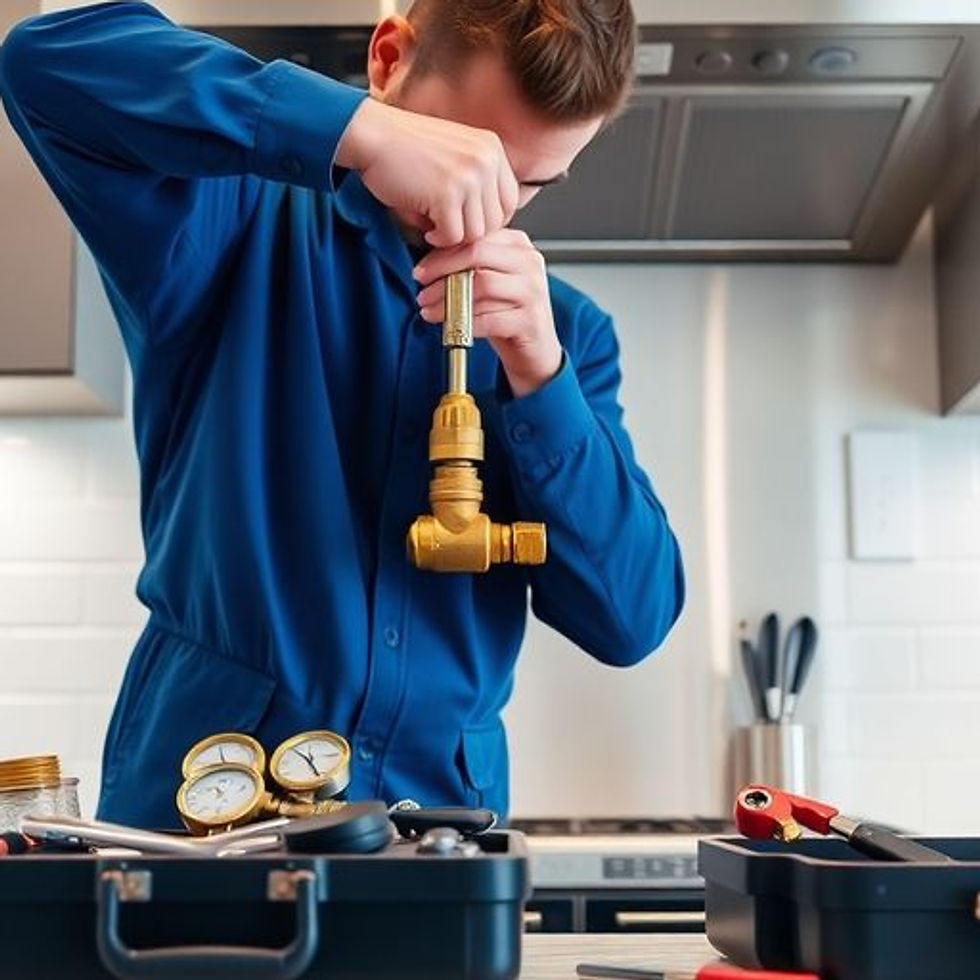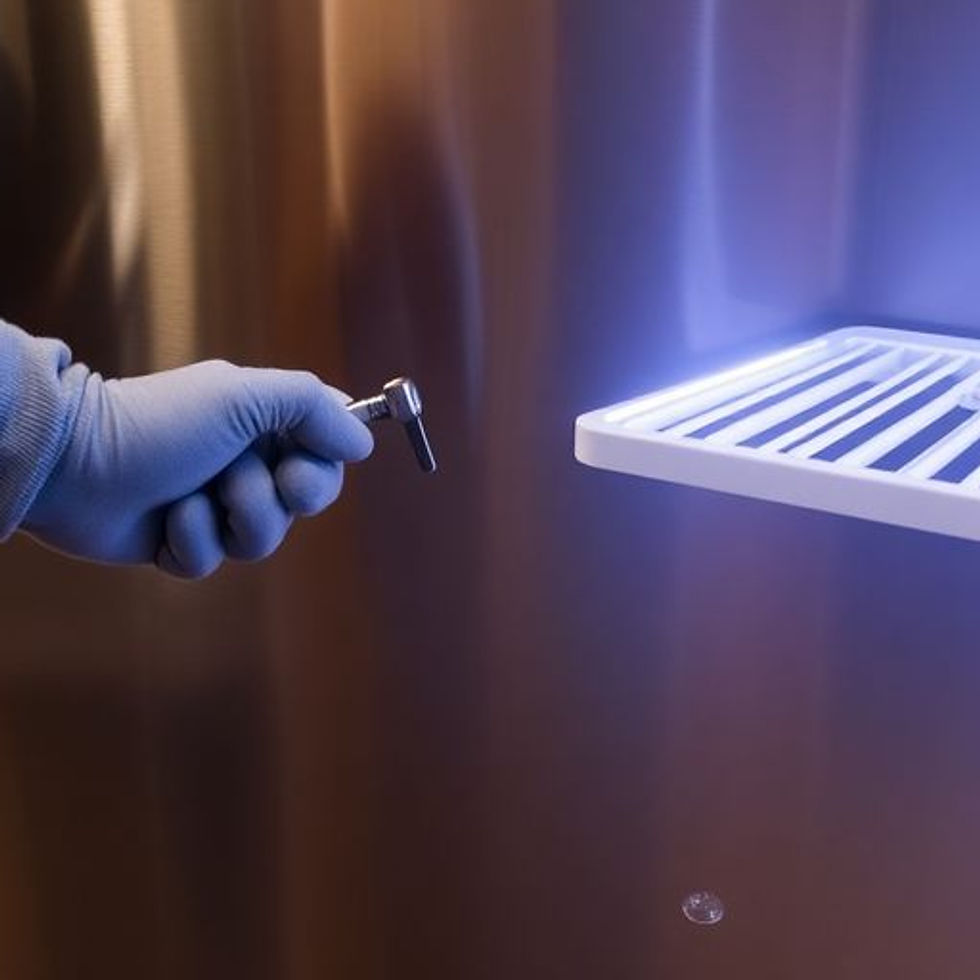10 Essential Tips for Maintaining Your Home Appliances
- ZIv H

- Jul 22, 2024
- 5 min read
Updated: Mar 24, 2025
Taking care of your home appliances is important to make sure they last a long time and work well. Simple tasks like cleaning and checking parts can save you from big problems later. Here are 10 easy tips to help you keep your appliances in top shape.
Key Takeaways
Always read and understand the user manuals for your appliances.
Regularly clean filters, vents, and lubricate moving parts.
Keep refrigerator coils clean to ensure efficient operation.
Use the right cookware and avoid overloading your appliances.
Check water supply hoses and promptly clean up spills.
1. Read and Understand User Manuals
Every appliance you buy comes with a user manual. These booklets are not just for show; they contain important information on how to use and take care of your appliances. Reading the manual can help you avoid common mistakes that might damage your appliance.
User manuals often include:
Detailed operating instructions
Troubleshooting tips
Safety warnings
Warranty details
Taking the time to read and understand these guides can save you a lot of trouble in the long run. It’s like finding the best kitchen appliance repair near me: a comprehensive guide. Tips for maintenance, warranty advice, and benefits of local services. Key takeaways and how to choose the right repair service.
2. Regularly Clean Filters, Vents, and Lubricate Parts
Keeping your appliances in top shape means giving some love to their filters, vents, and moving parts. Filters and vents can get clogged with dirt and debris, making your appliances work harder than they need to. This can lead to higher energy bills and a shorter lifespan for your gadgets.
To keep things running smoothly, follow these simple steps:
Check and clean filters and vents regularly. A good rule of thumb is to do this every three months.
Lubricate moving parts like hinges and motors to prevent friction and wear. This will help your appliances last longer.
Follow the manufacturer's guidelines for cleaning and maintenance. They know their stuff!
3. Keep Refrigerator Coils Clean
Your refrigerator's coils are like the unsung heroes of your kitchen. They help get rid of the heat generated by the compressor, keeping your fridge cool. But when these coils get dirty, they can't do their job well. This means your fridge has to work harder, using more energy and costing you more money.
To keep things running smoothly, make sure to clean the coils every 6 to 12 months. You can use a coil brush or a vacuum cleaner to get rid of the dust and debris. Regular cleaning improves your refrigerator's efficiency and can save you on energy costs.
4. Use Optimal Loading Practices
Overloading your appliances like dishwashers and washing machines might seem like a time-saver, but it can actually strain the motors and increase the risk of malfunction. Distribute items evenly to keep the balance and avoid excessive vibration during operation. Always check the user manual for the recommended loading capacities and guidelines. This simple step can save you from costly repairs and extend the life of your appliances.
5. Avoid Slamming Oven Doors
Slamming your oven door might seem harmless, but it can actually cause a lot of damage. The hinges, seals, and even the internal parts can get messed up. This means your oven won't keep heat in as well, and your food might not cook right.
Instead, close the oven door gently but firmly. This helps keep everything in place and makes your oven last longer.
6. Check Water Supply Hoses
Regularly inspect the water supply hoses of your appliances, like your washing machine and dishwasher, for any signs of wear. Look out for cracks, bulges, or leaks. Replace damaged hoses immediately to prevent water damage to your home and the appliance itself. For added durability and leak resistance, consider upgrading to stainless steel braided hoses.
Inspect hoses for cracks, bulges, or leaks.
Replace damaged hoses right away.
Upgrade to stainless steel braided hoses for better durability.
7. Promptly Clean Oven Spills
Spills and debris left in the oven can burn and emit smoke, unpleasant odors, and potentially harmful fumes. Clean spills as soon as they happen to keep your cooking environment safe and pleasant. Use a damp cloth or mild oven cleaner to wipe up messes right away. Avoid using abrasive cleaners or scraping tools that can damage the oven’s interior coating.
For a more thorough guide to cleaning your stove: maintenance tips include using baking soda, vinegar, and proper tools for best results.
8. Use the Right Cookware
Choosing the right cookware for your appliances is like picking the right shoes for a marathon. It makes all the difference! Here are some tips to keep in mind:
Match your cookware to your appliance’s heating elements and cooking surfaces. This helps prevent damage and ensures even cooking.
Avoid using metal utensils on non-stick surfaces. This prevents scratching and peeling of the coating.
Always refer to your appliance’s user manual for recommended cookware types and usage guidelines.
9. Properly Store Refrigerated Items
Keeping your fridge organized isn't just about aesthetics; it's about keeping your food fresh and safe. Store perishable items in sealed containers to prevent moisture loss and spoilage. Organize your fridge by zones: dairy, meat, and produce each have their own spots to avoid cross-contamination.
Keep the temperature between 37-40°F (3-4°C) to slow bacterial growth. This simple step can make a big difference in food quality. If you ever face issues like leaking water or unusual noises, there are quick solutions for appliance repair near me: refrigerator issues are solved in no time!
10. Prevent Overheating
To keep your appliances from overheating, make sure they have enough space around them for air to flow. Proper ventilation is key! Don't block air vents or put things on top of appliances that can trap heat. If you notice strange smells, hot surfaces, or your appliance acting weird, check it out right away.
Give appliances room to breathe.
Keep air vents clear.
Watch for signs of overheating.
Conclusion
Taking care of your home appliances doesn't have to be a chore. With these 10 essential tips, you can keep your gadgets running smoothly and avoid those annoying breakdowns. Remember, a little bit of regular maintenance goes a long way. Plus, who doesn't love saving money on repairs? So, grab your toolbox, put on your DIY hat, and give your appliances the TLC they deserve. Your future self will thank you!
Frequently Asked Questions
Why is it important to read and understand user manuals?
Reading the user manual helps you understand how to properly use and maintain your appliance. It can prevent misuse and extend the life of the appliance.
How often should I clean filters and vents?
You should clean filters and vents at least once a month to ensure your appliances run efficiently and to prevent any blockages.
What’s the best way to clean refrigerator coils?
Unplug the fridge and use a vacuum or a coil brush to remove dust and dirt from the coils, usually located at the back or bottom of the fridge.
Why should I avoid slamming oven doors?
Slamming the oven door can damage the door’s hinges and seals, which can lead to heat loss and inefficient cooking.
How can I check water supply hoses for issues?
Inspect the hoses for any signs of wear, cracks, or leaks. It’s a good idea to replace them every 5 years to prevent unexpected bursts.
What should I do if my appliance overheats?
If your appliance overheats, turn it off immediately and unplug it. Let it cool down and check for any blockages or issues before using it again.






Comments